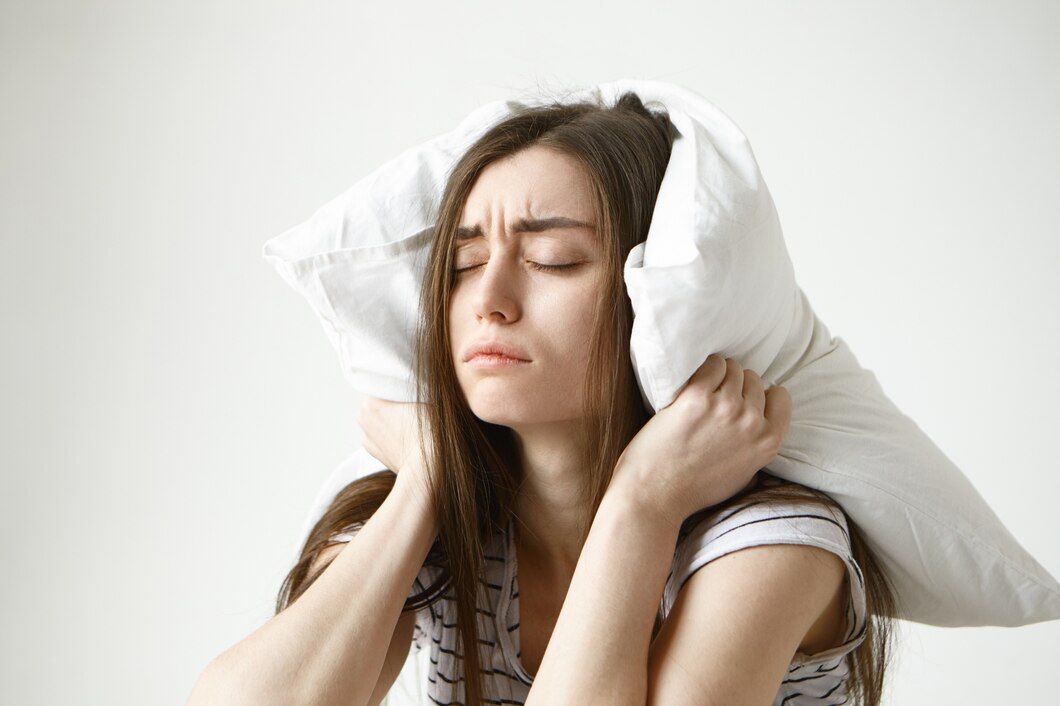No products in the cart.
Sleeping Tablets
Overcoming Sleep Problems: OTC Sleep Aids Compared
Purchasing OTC sleep aids online offers convenience, privacy, and accessibility. However, it comes with risks if you choose unsafe or fraudulent pharmacies. For UK consumers, understanding how to identify a safe online pharmacy is essential to avoid counterfeit drugs, financial loss, and potential health hazards.
With the rise of e-commerce, many websites claim to sell legitimate medication, including OTC sleep aids, but not all are verified or regulated. The UK’s Medicines and Healthcare products Regulatory Agency (MHRA) provides guidance and certification to help consumers identify legitimate sources. Knowing the signs of a reputable online pharmacy can save you from dangerous situations.
Understanding Over-the-Counter Sleep Aids
OTC sleep aids are medicines or supplements available without a prescription. They are meant for short-term use and should complement healthy sleep habits rather than replace them. The goal is to reset your sleep rhythm or manage occasional sleeplessness, not to create long-term dependency.
In the UK, these aids include herbal supplements, natural sleep remedies, and low-dose sedatives like antihistamines. Many people use them to combat temporary stress, jet lag, or mild insomnia. But not all sleep aids are created equal — and some may not be suitable for everyone.
Melatonin Supplements: Supporting Your Body’s Rhythm
Melatonin is one of the most talked-about natural sleep aids worldwide. It is a hormone naturally produced by the pineal gland, which helps regulate your sleep-wake cycle. Supplemental melatonin can be useful when your internal clock is disrupted, such as during jet lag or shift work.
In the UK, melatonin is classed as a prescription-only medicine for most uses, but low-dose versions may appear in certain OTC sleep aids UK formulations or imported supplements. When taken correctly, melatonin helps signal to your body that it’s time to sleep, promoting faster sleep onset.
However, it’s not a sedative. Its main role is in timing sleep rather than forcing drowsiness. Overuse or taking it at the wrong time can lead to grogginess or disrupt your natural rhythm.
Valerian Root: Herbal Relief for Restless Sleep
Valerian is an ancient herb used for centuries to promote relaxation and better sleep. Found in teas, capsules, and tinctures, valerian works by gently calming the nervous system.
It is often recommended for people who experience occasional anxiety or stress that affects sleep. Compared to synthetic options, valerian has fewer side effects, though some users report mild headaches or digestive discomfort.
Valerian may take a few days to build up its full effect. Unlike stronger sedatives, it promotes natural relaxation without heavy drowsiness or dependency risks. This makes it one of the most popular herbal choices among adults seeking non-prescription sleep support.
Antihistamines as Sleep Aids
Certain antihistamines, such as diphenhydramine and promethazine, are common ingredients in OTC sleep products. Originally designed for allergies, these substances cause drowsiness as a side effect. That’s why they’re used in many nighttime cold medicines and over-the-counter sleep tablets.
While effective for short-term use, antihistamines are not ideal for long-term management. They can cause next-day grogginess, dry mouth, and decreased alertness. Over time, your body can develop tolerance, making them less effective.
If you use antihistamines for sleep, it’s best to do so occasionally — for instance, when stress or travel disrupts your sleep. Always follow the dosage instructions and avoid combining them with alcohol or other sedatives.
Comparing OTC Sleep Aids in the UK
When choosing a sleep aid, consider how each product aligns with your needs and health profile. Some people respond better to herbal solutions like valerian, while others find melatonin or mild sedatives more effective.
Here’s a simple comparison of common OTC sleep options:
- Melatonin – Best for jet lag or sleep schedule disruptions. Helps regulate sleep timing.
- Valerian root – Ideal for stress-related sleeplessness. Calms the mind naturally.
- Antihistamines – Works quickly but can cause next-day drowsiness. Suitable for occasional use.
Choosing depends on your sleep issue’s cause and your tolerance to potential side effects. Consulting a pharmacist or healthcare provider can help identify the safest option.
Understanding Dosage and Duration
Dosage varies between sleep aids and individuals. Too much of any product can lead to side effects or reduced effectiveness over time.
For herbal supplements, follow manufacturer guidelines or professional advice. For example, valerian is often taken 30–60 minutes before bedtime, while melatonin should be timed according to your desired sleep schedule. Antihistamines should not be taken more than recommended — usually one dose per night for a few days at a time.
Using these aids continuously can mask underlying issues such as anxiety, depression, or medical sleep disorders. If your sleeplessness persists, professional assessment is essential.
Safety and Side Effects
While OTC sleep aids are generally safe for short-term use, no product is risk-free. Melatonin may cause vivid dreams or grogginess if used incorrectly. Valerian can occasionally lead to mild headaches or stomach upset. Antihistamines can impair coordination and concentration the next day.
It’s also important to consider drug interactions. Combining sleep aids with alcohol, sedatives, or certain antidepressants can intensify drowsiness or lead to dangerous reactions. Always read labels carefully and consult your doctor before combining treatments.
Avoiding Dependency Risks
Dependency is one of the biggest concerns with sleep aids. Even natural options can become habit-forming if relied on every night. Building a routine around supplements instead of improving sleep hygiene can create psychological dependence.
To avoid this, use OTC aids as a temporary measure while you work on underlying causes such as stress, poor bedtime habits, or irregular schedules. Gradually reducing use once your sleep improves helps restore natural sleep patterns.
Non-Medicinal Approaches to Better Sleep
While OTC sleep aids can help, they work best when combined with healthy lifestyle changes. Focus on creating a bedtime routine that supports relaxation.
Avoid screens at least an hour before bed and reduce caffeine in the afternoon. Keeping a consistent bedtime and wake time trains your body’s internal clock. A calm environment, low lighting, and cool room temperature also promote rest.
Gentle practices like meditation, breathing exercises, or herbal tea can make a big difference. Many people find that once they adopt these habits, they need sleep aids less frequently or not at all.
Choosing Reliable Products
With countless sleep aids available online, it’s important to purchase from trustworthy sources. Always check that the website or pharmacy is legitimate and registered in the UK. Look for professional packaging, clear ingredient lists, and accurate dosage information.
Avoid unbranded pills or “miracle sleep” solutions that promise instant results. These often come from unregulated suppliers and may contain unsafe substances.
Sleep Aids and Lifestyle Balance
Using sleep aids responsibly means knowing when to use them — and when not to. They can be valuable tools for occasional sleeplessness but should not replace long-term solutions. Building balance involves listening to your body and understanding what disrupts your rest.
Many adults find that combining an OTC sleep aid with better stress management or physical relaxation creates sustainable improvements. Sleep is not just about medication; it’s about restoring natural balance.
Conclusion
Overcoming sleep problems doesn’t always require prescription drugs. OTC sleep aids UK such as melatonin, valerian, and antihistamines can help restore rest when used correctly and sparingly. Understanding their differences, following dosage guidelines, and prioritizing safety can make these aids both effective and dependable.
If used wisely, they can support healthier sleep patterns without creating dependency. Remember that quality sleep depends as much on your habits as it does on any product. For UK adults seeking reliable sleep support, combining trusted OTC options with mindful bedtime practices is often the best path to consistent, restful nights.
Frequently Asked Questions (FAQs)
2. Can I take melatonin without consulting a doctor?
In the UK, melatonin is usually prescription-only. Always confirm with a healthcare professional before using supplements.
3. What’s the safest natural sleep aid?
Valerian root is one of the most popular and well-tolerated herbal remedies for occasional sleeplessness.
4. Are antihistamines suitable for everyone?
No. They can cause drowsiness and are not recommended for older adults or those with certain health conditions.
5. What should I do if OTC sleep aids don’t work?
Consult your doctor. Persistent insomnia may require different treatment or investigation of underlying causes.

